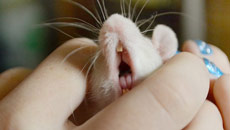Dinosaurs are not extinct, go tell this to your kids. There are about 10,000 species alive today - in the form of birds!
Yes. The dinosaurs just shrank their bodies over a period of time to helped them turn into birds to continue exploiting new ecological challenges throughout their evolution, a fascinating research has revealed.
“We found exceptional body mass variation in the dinosaur line leading to birds, especially in the feathered dinosaurs called maniraptorans,” said Roger Benson from Oxford University's department of earth sciences.
These include Jurassic Park's Velociraptor, birds and a huge range of other forms, weighing anything from 15 grams to 3 tonnes and eating meat, plants and more omnivorous diets.
An international team, led by scientists at Oxford University and the Royal Ontario Museum, estimated the body mass of 426 dinosaur species based on the thickness of their leg bones.
The team found that dinosaurs showed rapid rates of body size evolution shortly after their origins, around 220 million years ago.
However, these soon slowed: only the evolutionary line leading to birds continued to change size at this rate and continued to do so for 170 million years, producing new ecological diversity not seen in other dinosaurs, the researchers added.
“How do you weigh a dinosaur? You can do it by measuring the thickness of its leg bones, like the femur. This is quite reliable,” said Nicolas Campione from Sweden-based Uppsala University, a member of the team.
“This shows that the biggest dinosaur Argentinosaurus, at 90 tonnes, was 6 million times the weight of the smallest Mesozoic dinosaur, a sparrow-sized bird called Qiliania, weighing 15 grams. Clearly, the dinosaur body plan was extremely versatile,” Campione explained.
The team examined rates of body size evolution on the entire family tree of dinosaurs, sampled throughout their first 160 million years on Earth.
“What we found was striking. Dinosaur body size evolved very rapidly in early forms, likely associated with the invasion of new ecological niches. In general, rates slowed down as these lineages continued to diversify,” informed David Evans from Royal Ontario Museum.
The evolutionary line leading to birds kept experimenting with different, often radically smaller, body sizes.
Other dinosaur groups failed to do this, got locked in to narrow ecological niches, and ultimately went extinct, said the study that appeared in the journal PLOS Biology.





